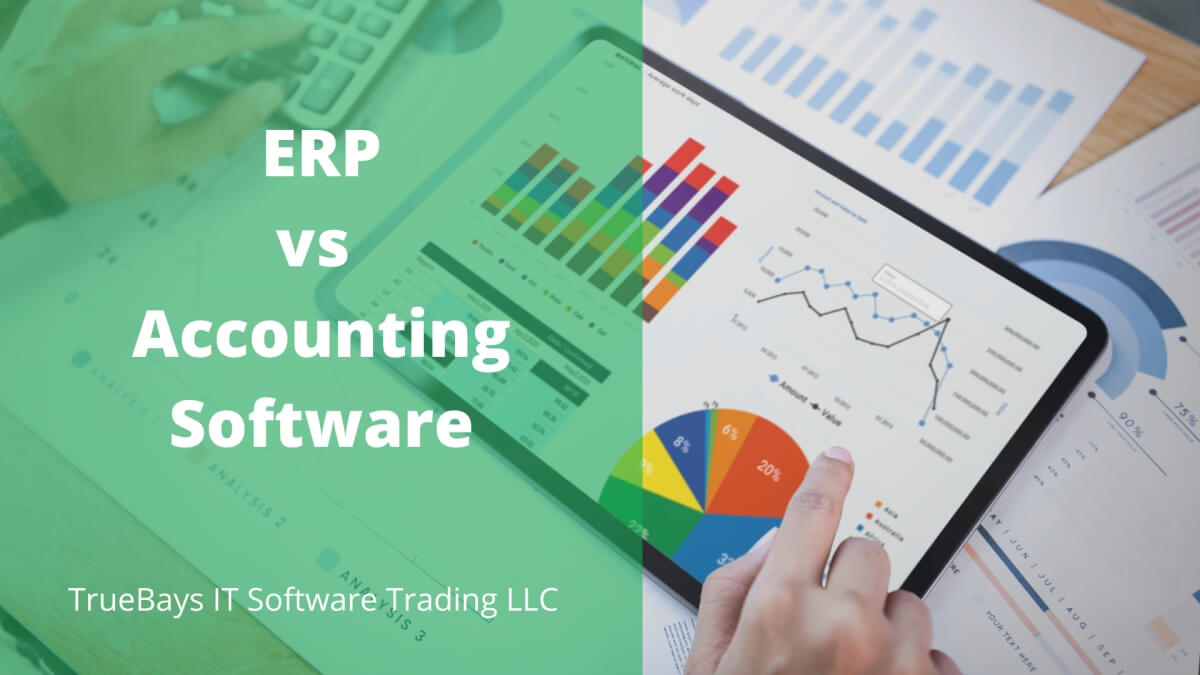ERP vs Accounting Software
Accounting software takes care of functions such as financial reporting, accounts payables and receivables, and banking; on the other hand, ERP solutions would handle various modules such as supply chain, inventory, production, HR, sales, purchase, and more, along with accounting.
However, many businesses think it is fine to use “accounting software” and “ERP software” interchangeably.
In this article, we will see what is accounting software and ERP system and their differences.
As the market is expecting a faster turnaround time and customers are demanding personalized services and approaches, companies are bound to collect and process more data. In such scenarios, every business feels a need to install software that backs the operational efficiency.
Companies need software that has relevant features and fulfills the industry-specific needs and challenges. Softwares such as accounting and financial management software that focuses on specific business needs and comprehensive software such as end-to-end ERP solutions become handy.
What is accounting software?
Accounting software is designed to handle organizational finances. It automates bookkeeping, accounts receivable, accounts payable, and other financial or budgeting data processing activities. Accounting Software can be integrated with other systems to improve operations efficiencies, such as ERP for automated order processing or payroll system for automated payroll approvals.
What is an ERP system?
ERP system is a comprehensive solution that offers various functions and functionalities such as supply chain, financial management, CRM, and other industry-specific solutions that would help businesses of all sizes and scales to gain complete visibility and control over business operations and compete with full power and ease in an increasingly competitive market.
ERP is a comprehensive data system that enables you to flawlessly process and analyze data throughout company-wide functions. So, in ERP, you get accounting and more in one place, and all the data is stored in one place with access to every relevant department so that the relevant data can be reached 24X7 irrespective of the department that needs it.
The main driver in choosing the most fitted ERP software for accounting is to optimize the overall operational efficiency and add transparency in the business operations.
ERP Software Vs Accounting Software
- Functionality
As you know by now, ERP has both the accounting and financial management abilities that are capable of offering you a 360-degree enterprise-wide view, along with features such as Sales, Inventory Management, Purchasing, Financial Management & Reporting, Warehouse, Quality Management, HR, CRM, Mobility, and more. Accounting software focuses mainly on the processing of financial records.
- Industry-Specific Needs
Accounting software comes with a limited capacity to monitor and track products or inventory. It has to rely on third-party add-ons to complete the data and keep an accurate track.
On the other hand, the ERP solution comes with credible inventory management tools to help manufacturers and distributors keep track. In Manufacturing ERP, businesses can manage inventory to mitigate stock carrying costs, make informed and speedy decisions, and decrease labor costs.
ERP can also manage your entire shop floor execution system without any hassle. ERP will take care of BOMs, supply chain management, production planning, resources, shipments, and many more functions. On the other hand, accounting software won’t be able to fulfill your manufacturing management demands.
- GAAP compliances
Take some known and credible ERP solutions or accounting software, and you will realize that many of them are not GAAP (Generally Accepted Accounting Principles) compliant, including the popular ones.
Small and mid-sized companies might not be able to afford such software. Hence, it is suggested that you must ask every doubt and query to the vendor before making the final purchase. Your vendor must tell you how his software can help you comply with tax laws, GAAP standards, and financial rules.
- Capabilities
Accounting Software does not offer sales or customer relationship management capabilities; on the other hand, an ERP solution offers sales and order processing functions too. ERP lets your business access data from various departments and functions, and you can also access past communications. Stand-alone accounting software doesn’t offer you this.
- Mobility and Real-time data
Accounting software does not provide any performance insights or automatic optimization features. Also, it does not provide real-time data and mobility while ERP collects and integrates data across the departments and builds a centralized database. This data is stored on the cloud to offer access from anywhere, at any time, using any mobile device. You can access this data in real-time.
Conclusion:
The difference between ERP and Accounting software is that ERP focuses on managing all aspects of an organization whereas accounting software just processes financial records. An ERP system is a broader and sometimes more expensive solution when compared to accounting software. They offer an end-to-end view of the company’s business processes in order to improve efficiency and streamline workflow. Accounting software does not provide any performance insights or automatic optimization features. So ERP is turning out to be a better choice to manage your business, irrespective of its size, capacity, and location.


